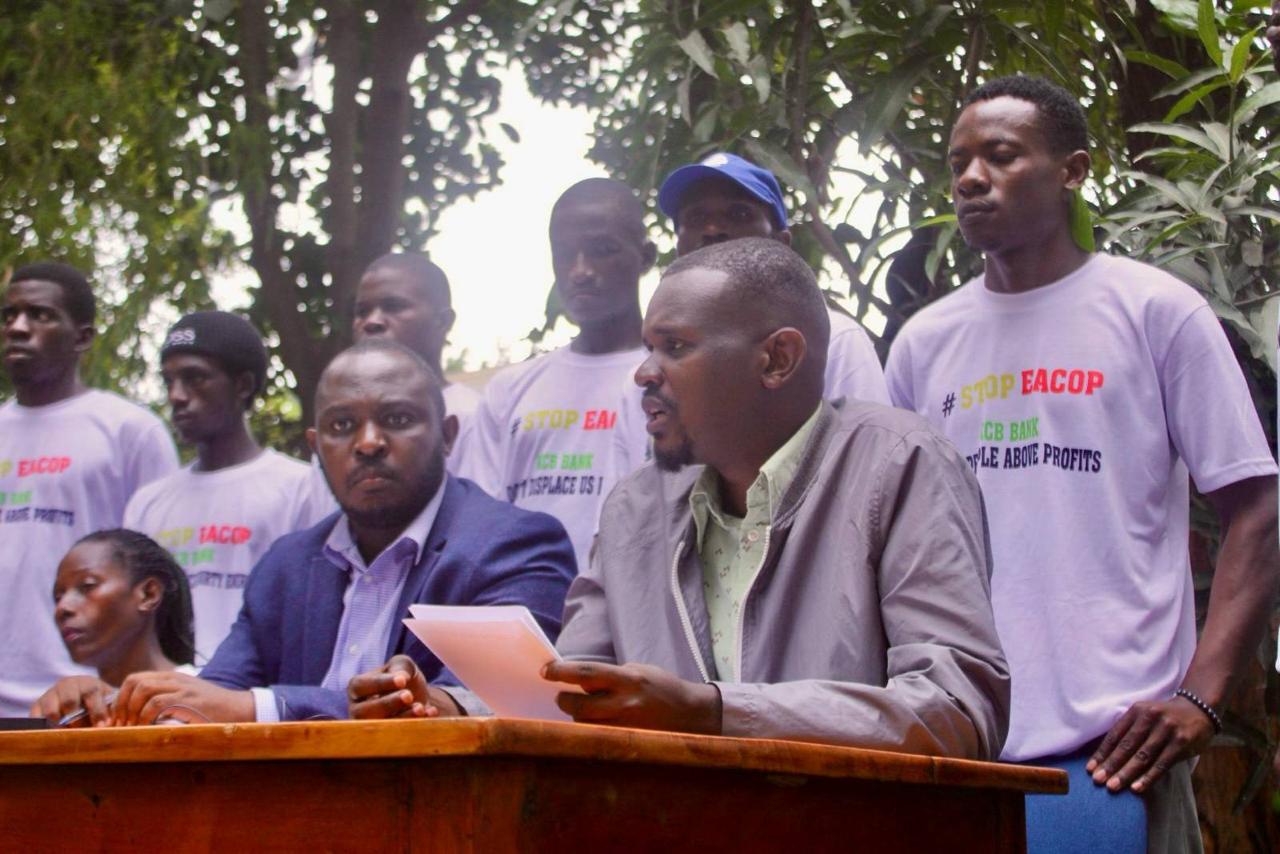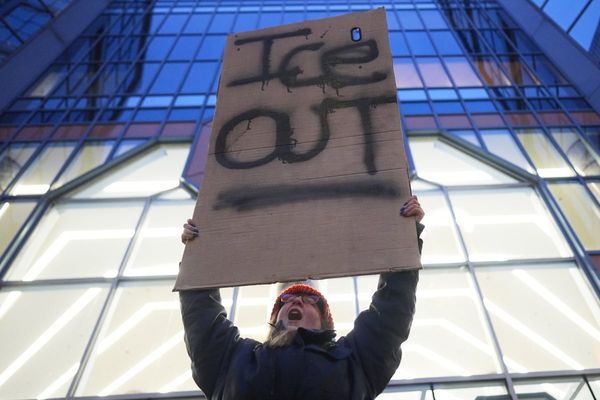
Environmental activists have accused one of Kenya’s largest banks of suppressing protest over the controversial East African Crude Oil Pipeline (EACOP).
The EACOP is a proposed 900 mile (1,443 kilometre) heated pipeline that will transport oil from hydrocarbon fields around Hoima, Uganda, to the port of Tanga in Tanzania. KCB Bank, through its subsidiary in Uganda, are providing some financing for the project alongside a number of other institutions.
Protests over the project have been going on for years – with a report from Human Rights Watch (HRW) claiming that the pipeline would displace more than 100,000 people, in addition to exacerbating the climate crisis. Compensation to displaced people is too low, and take years to arrive, according to HRW.
EACOP has been under development since 2013 and under construction since 2017, but has long faced delays related to uncertain financing, with 43 banks and 30 insurers making public commitments to not support the project over environmental and human rights concerns, according to the stopEACOP campaign. But at the end of March 2025, EACOP announced it had closed its first tranche of external financing for the project, with financing from banks including South Africa’s Standard Bank, the African Export Import Bank, Stanbic Bank Uganda, and KCB Bank Uganda.
Then last month, 11 environmental activists travelled to the KCB Bank Uganda’s headquarters in Kampala to deliver a petition demanding its withdrawal from EACOP. There they were handed to police officers who arrested them. They are still being detained.
The petition that stopEACOP activists took to KCB’s headquarters in April, which has been seen by The Independent, highlights human rights and environmental concerns, and calls on KCB to “review and rescind its decision to finance the EACOP project immediately”.
The 11 activists allege that after they arrived, they passed through security before they were told to wait for more than an hour. They say they were then told they would meet a bank official to whom they could deliver their petition. They say they were led down to the basement, where they faced police officers and were arrested on charges of illegal trespass.
The activists have since been held in the remand wing of Luzira Maximum Security Prison, where they remain awaiting trial.
“It is completely wild what happened: they entered the bank... to peacefully deliver their letter,” says StopEACOP campaign coordinator Zaki Mamdoo.
Brighton Aryampa, a Ugandan environmental and human rights lawyer who is representing all eleven of the arrested activists, said: “[The activists] were simply highlighting the many negative impacts of EACOP, and they were doing so perfectly legally.”
Aryampa added that the activists were denied bail on a technicality over paperwork, which he called unusual.
“It is a worrying sign for the case, because bail is based on a presumption of innocence,” he said. “ The offence of criminal trespass slapped on the activists is bailable by the trial court.”
The activists are next due in court on 27 May, where Aryampa and other lawyers on the legal team will request again that they be granted bail.

Abiud Onyach, a Kenyan activist at NGO 350.org, said he believed KCB Bank was acting in a way that is “overzealous”, driven by fear of a government backlash, or out of concern that activists might come back again if it was thought that the bank would humour protests.
Case files shared with The Independent show that some 120 arrests have taken place against anti-EACOP activists since August 2024 in cases that Aryampa has worked on. That included nine this Wednesday in a protest over the pipeline outside KCB Bank’s headquarters in Kampala.
As far back as 2023, HRW released a report including interviews with 31 people, 21 of them human rights activists, alleging that Uganda was using its “laws, courts, and security forces to harass, intimidate and pressure human rights defenders, civil society, and other protesters into silence” on EACOP.
Other reporting from HRW alleges that the project has pressurised farmers in the path of the EACOP pipeline or left them worse off than they were before.
“In the path of the pipeline there are hundreds of communities that have been forcibly removed and moved to land that is inadequate or infertile,” alleges Mamdoo.

He adds that the pipeline is being built for the export of crude oil, with refining - and therefore economic value related to the project - set to occur overseas.
“It really is an example of typical neo-colonial extraction,” he says.
The EACOP project says that it is “committed to respecting the human rights and dignity of individuals within our operations, supply chain, and communities where we do business”
Spokespeople from KCB Bank and the Ugandan Ministry of the Internal Affairs did not immediately respond to multiple requests for comment from The Independent.
A spokesperson for French oil giant TotalEnergies, which has a 62 per cent stake in EACOP, said: “We reaffirm that TEPU [TotalEnergies Uganda] does not tolerate any threats or violence against those who peacefully defend and promote human rights. We have always reminded our associated parties of the importance of respecting human rights.
“TEPU and EACOP Ltd maintain an open dialogue with the authorities, to stress to the Police the need to ensure that due process is followed, the protestors are treated well, and their rights are respected while in detention.”
On the issue of compensation for affected families, the spokesperson said that the project required the acquisition of 6,400 hectares of land, impacting 19,262 households. They added that 99.6 per cent of the compensation agreements have been paid, and 100 per cent of the required new houses have been built.
This summer’s weather forecast just got even hotter
Fairtrade flags ‘window of opportunity’ to drive systemic change for tea farmers
UK aid cuts will decimate the fight against malnutrition across Africa
National Weather Service reportedly trying to fill 155 jobs after layoffs
AI is already beating traditional forecasters when it comes to predicting weather
‘Global red alert’: Wildfires drive record forest loss in 2024, alarming data reveals







